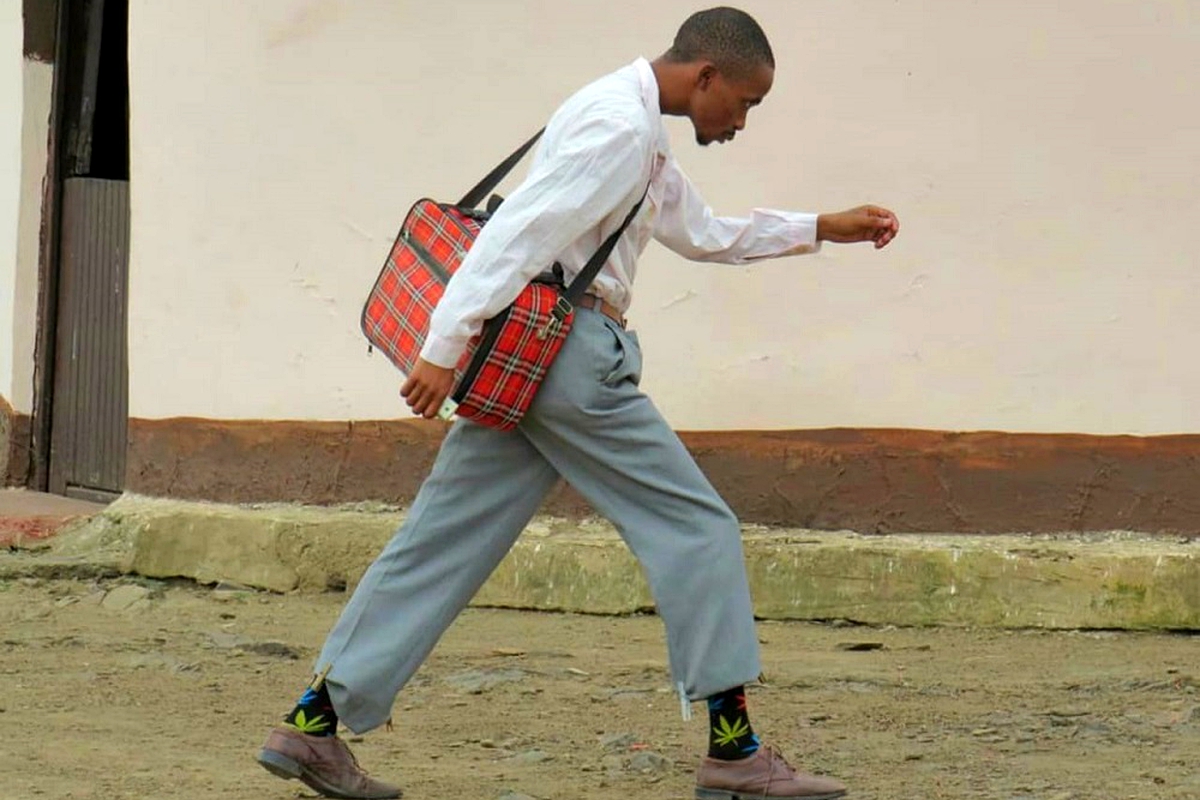WHEN gold and platinum mines opened jobs for Basotho in the neighbouring South Africa, it was a mighty phenomenon, enticing eager young men from all over the Mountain Kingdom. All of them had visions of unimaginable wealth dancing in their heads.
society
June 2, 2021
KABELO MASOABI
3 min read
Once upon a time in a life of miner

A drained miner returning home
What they discovered when they arrived at the SA mining camps was however, far different from their dreams. Before the 1990s, life in a mining town was challenging most of the time.
Ex-miner Sefafe "Nqaza" Mokhoro, who worked in the mines of Welkom and Rustenburg from 1978 until 2010, says gambling was the entertainment of choice in sheebens and rough places for tough people.
He says gangs such as ‘Marashea’ exaggerate the scenarios.
He said, "Most of the men would be armed with handguns, with fights breaking out from time to time”.
He was nicknamed 'Ntate Nqaza' by friends back home in Senqunyane; in Mokhotlong because he trended in expensive ‘Brentwood’ pants.
Life in the gold fields exposed miners to loneliness and homesickness, isolation and physical danger, bad food, illness and even death. More than anything else, mining work was hard.
Mokhoro says fortune might have been right around the corner, but so was failure.
"The promises and commitment to remain faithful in body and spirit to families left behind were constantly tested by the struggles and temptations of the moment," he explains.
Mokhoro, 70, says other miners responded to these challenges with humour, resilience and sometimes despair.
"Escape from the realities of their conditions might be found in correspondence with home, in community with fellow miners, at a gambling table or in a bottle of whiskey.
“When you were on leave, it was difficult and painful to return to work. You would want to enjoy and cherish every moment you got to spend with family at home in Lesotho.
“Taking care of fields and livestock were also very important factors in our lives and having to part ways with such wealth was devastating. However, the respect miners received at home was appeasing. People thought working in the mines was 'heaven on earth' but little did they know that it was actually a nightmare," he recalls.
Despite the fact that miners had little leisure time before the 20th century, Metro also learned that during the free time they had, they indulged in a variety of activities.
Long hours spent underground made the miner especially keen on spending his leisure time in open air, like sports fields, music halls or dance floors. Some miners formed their football teams or male choral music groups.
Mokhoro says flirting with women was common among miners as a way to release stress at the camps, although the practice drove most of them to abandon their families back home, ending up in improper marriages in foreign lands.
Enjoy our daily newsletter from today
Access exclusive newsletters, along with previews of new media releases.
"Women from all black tribes in South Africa would ensure that one is happy as they mercilessly squandered the money we worked so hard for. It was impossible for a miner to go home penniless; hence, 'stay together' settings in camps became popular. Gang fights over this kind of women were also common and many workers lost their lives in the process.”
The old man who is battling lung sicknesses he caught underground says there was nothing good about staying in mine camps.
"When I was retrenched in 2001 due to ill-health, my second wife in Rustenburg threw me out of the house I bought her. I was no longer important to her because I was broke but my official wife accepted me with all my faults when I arrived home in Mokhotlong. Glory be to God," he says with a sorrowful face.
Tailored for you






